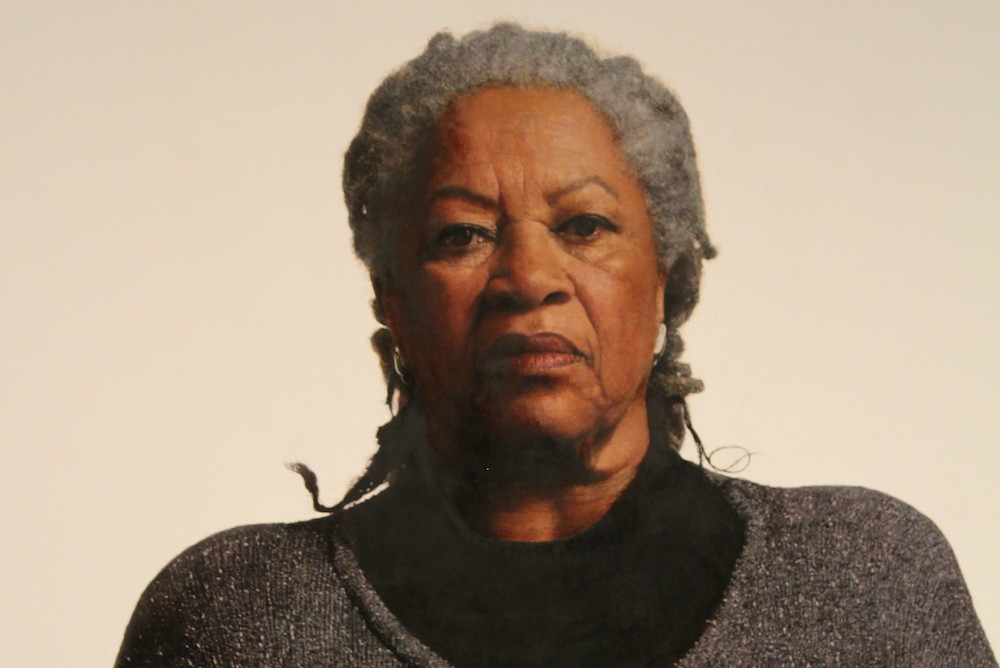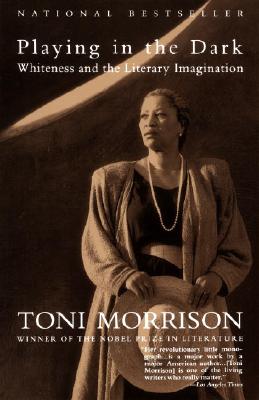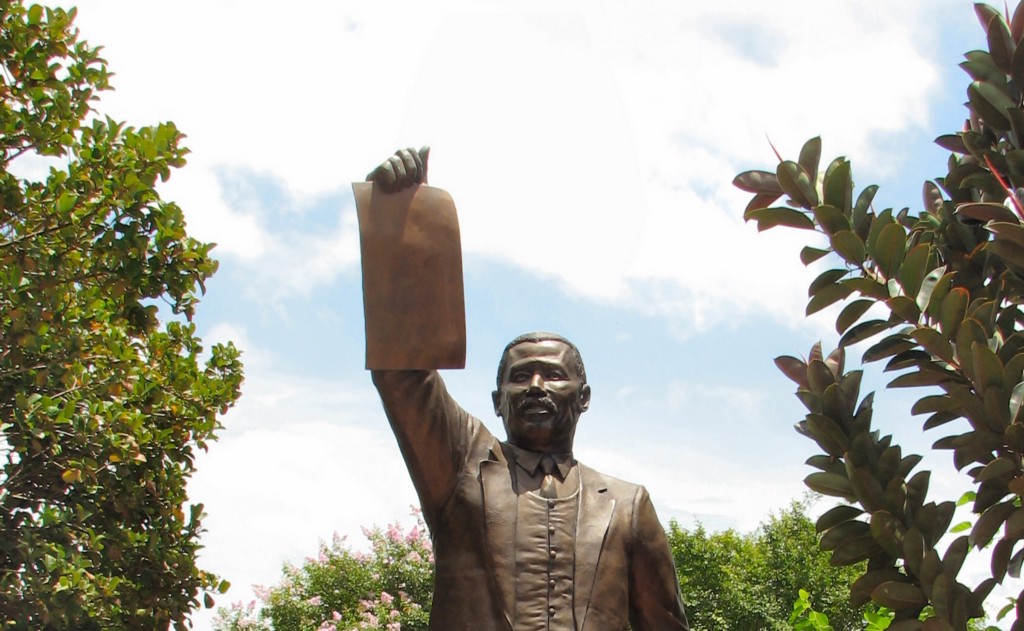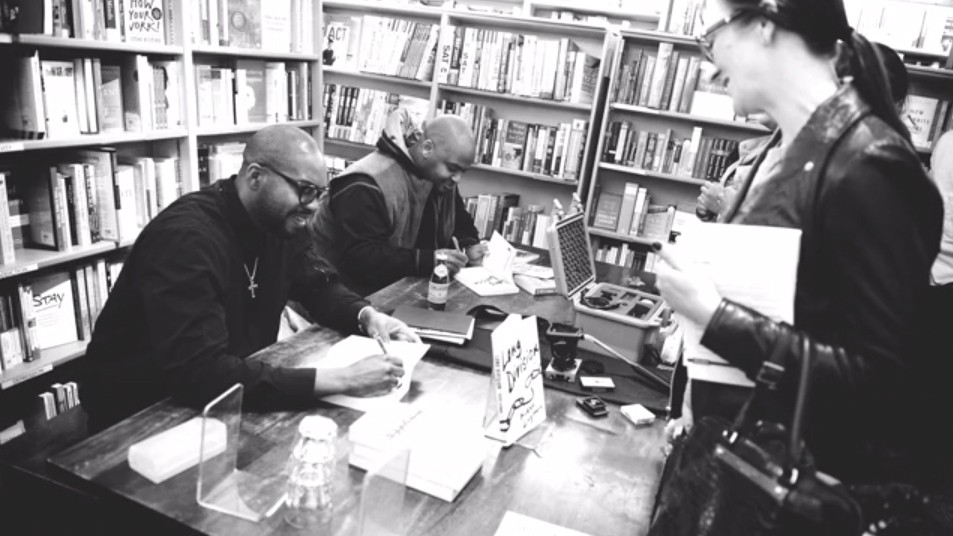Books & Culture
Toni Morrison Let Us Know We Are More Than the Work We Do
Considering some of the legendary novelist's lessons on the anniversary of her death

Adapted from remarks given at the Toni Morrison Festival in February 2020.
About three years ago, Toni Morrison wrote a short and, as is her style, superlative essay in The New Yorker titled “The Work You Do, The Person You Are.” At a young age, Morrison delineated an understanding of the fear of losing the power of a dollar while also recognizing the burdens of employment even with the financial reward. Morrison didn’t reveal the race of the person she worked for, but the power dynamics beyond employee and employer were clear; the status was clear. The piece concludes with her translation of a quick response from her father when she bemoaned how she was treated as an employee. Morrison condensed her father’s response to the following tenets:
1. Whatever the work is, do it well—not for the boss but for yourself.
2. You make the job; it doesn’t make you.
3. Your real life is with us, your family.
4. You are not the work you do; you are the person you are.
I have worked for all sorts of people since then, geniuses and morons, quick-witted and dull, bighearted and narrow. I’ve had many kinds of jobs, but since that conversation with my father I have never considered the level of labor to be the measure of myself, and I have never placed the security of a job above the value of home.
When we think about Morrison, we most prominently, and for good reason, dissect the writing she’s gifted us, material we can turn to weeks, months, years after her sunset. The New Yorker essay also bestows an understanding of her work ethic—though it’s an ethic we could have intuited from how methodical and responsible she was with the written word. When I read Morrison I don’t only take in the work of a magnanimous writer; I also consider how clearly her editorial framework comes through the control and distinction she pays to text, in pieces and as a whole. The impact she had as an editor further curated her love of books and at the same time distilled how she lived her life, how she represented herself, who she represented. (See Contemporary African Literature, Corregidora, The Black Book, to name a few.)
In the first chapter of Playing in the Dark: Whiteness and the Literary Imagination, Morrison conveys her early way of reading, when she presumed that Black people were of no consequence in the white American literary imagination. She digs into how Black people were erased in the white-dominated “canon,” and investigates white Americans’ willful refusal to read books about or by African Americans. And if white Americans weren’t reading those books, how could the white literary establishment publish them? “But then,” Morrison writes, “I stopped reading as a reader and began to read as a writer.” By altering her viewpoint, Morrison better informed her reading and empowered herself to acquire more books by Black writers. From the start of her time in publishing, this perspective allowed her to magnify the gaps in contemporary literature celebrated by white audiences, and to elevate books deserving the same shelf space. (See Tenet 2: “You make the job; it doesn’t make you.”)
Earlier this year I became an employee within a division of the publishing house where Toni Morrison once worked. Her name is inextricably linked with this press, due to her publications and the impact she had as an editor in the scholarly and trade divisions. There are many, though trust me not enough, hard-working and dedicated Black women in publishing. Recently, new names are being added to the roster, which we can hope is a lead-in for many more to come. Pre-quarantine we walked the halls and sat in conference rooms. Nowadays we enter virtual rooms where we are still one of a few if not the only. We speak our truths or hold our tongues, all in the name of a larger strategy to see and make a difference. We stay because we love the work and because we want to showcase the intrinsic dedication and brilliance of those of our ilk. We do the work because the work needs to get done. The navigation of being “the only” or “one of the few” requires a singular focus and a clear strategy to keep going. This is not just about the industry, it’s about our belief and love for what we bring to it.
Morrison more than likely fought in ways subdued, calculated, and blatant when she entered the office environment.
It may not be a surprise that Toni Morrison was one of the first Black women editors at Random House during her 19-year tenure. It may not be a surprise that she was one of the first Black women in this space with acquisitions power. It may not surprise you that she was one of the first Black women in this space to enter a “boys club,” a club I guarantee didn’t know how to recognize her as an equal, even when they shared the same title—though not the same salary. (To this day her adamance of “head of household” in the documentary The Pieces I Am rings true of the battle cry to make a proper and equitable wage to men.) What we can ascertain from this is that Morrison more than likely fought in ways subdued, calculated, and blatant when she entered the office environment as editor and then again outside of it, or adjacently as author when discussing her work again and again and again. Imagine the strength of mind and character it takes to be on both sides of the coin, to uplift Black people in your work each and every day when people don’t always see them the way you do, most notably as equals and most derogatorily as people. Imagine the love for the people one has to pursue this work as adamantly and precisely as she did and bring it in all ways to a deep admiration and honesty day in and day out. (See Tenet 1: “Whatever the work is do it well—not for the boss but for yourself.”)
Black publishing professionals continue to navigate working within the system while also trying to combat an industry that continues to provide roadblocks to access let alone retention, even when it purports to value Black lives. There’s no easy or singular answer to maintaining your own values in a space that does not value you as a person, let alone the work you’re producing or helping to produce. Like Morrison did in these same spaces, we may assert or negotiate or magnify the larger importance of the content and creators we support, not just for the company but for the nation. These may be seen as negotiations and yet they’re also part of the fight. At some point we all come to terms with the fact that negotiation can no longer be about what we will tolerate, but what we will not accept.
We know how much Morrison achieved—it is worth repeating and the right way to speak of someone who achieved so much. But alongside the achievements we know of, there are many that we do not know about. Ones that may seem small but are monumental in getting through each day. Ones in which we defend and deflect, be it ourselves or whatever opposes us. The ways of navigating what may not, outwardly, appear to be a hostile environment, but one that will not acknowledge that you deserve more. Having experienced this in ways both aggressive and passive-aggressive, I continually think of those who are the sole (or rare) entity carving out a way to be seen and, unintentionally and often unwillingly, representing so many others. As Hilton Als noted in his New Yorker profile on Morrison, she “preferred to publish writers who had something to say about Black American life that reflected its rich experience.” This is the way she published, wrote, and read. This is who Morrison was and how she exemplified an eternal love for Black people. This is who she prioritized in the roles she held and I can only imagine the ways she fought for them in these same halls/rooms/spaces.
This is who Morrison was and how she exemplified an eternal love for Black people.
This year, at the height of the George Floyd protests, many businesses designated June 2nd as Blackout Tuesday, a day of (optional or enforced) mourning. My company gave me the option to take that day off. I performed my job functions anyway because my grief didn’t start or end on that Tuesday. In the afternoon, I sat at a desk in the corner of my living room. I spoke calmly into a headset for a video conference in recognition of this moment. I spoke into what has felt like a void in quarantine, even more so due to the intense quiet and periodical appearance of teary-eyed/somber faces on my screen. I had no video, so my Blackness was not on display in the way it would be if we all still shared office space. Pledges to be conscious, to be more aware, to make more efforts in the content published and the people present on the line were made. My headphones pulsed with the repetition of how valued Black people were especially as we kept producing. I talked to other Black writers and publishing professionals and we spoke honestly and with uncertainty. At the end of the day several people said to me, “All we have is us” and “Keep doing what you’re doing because it’s important” and “We see you.” The power of those words from those you know beyond a moment makes us take a breath, and a break, before we resume. (See Tenet 4: “You are not the work you do; you are the person you are.”)
I began with a quote from Morrison, so it makes sense to end with one: “Being a Black woman writer is not a shallow, but a rich place to write from. It doesn’t limit my imagination, it expands it. It’s richer than being a white male writer because I know more and I’ve experienced more.” To be a Black women editor in a large publishing world, who you are has to be as distinct as how you read and discuss what you read. Morrison has written extensively of that awareness in her reading, and how it led her to prioritize who she was always trying to reach, and allowed her to broker past the issues of “what could sell” to land on what is needed and desired. It may come as no surprise her contextual awareness of being, not just as writer but as a Black woman, also allowed Morrison as editor, as teacher, as speaker, as observer to conquer the world at large and recognize, as well as continually illustrate, that we could too. (See Tenet 3: Your real life is with us, your family.)









